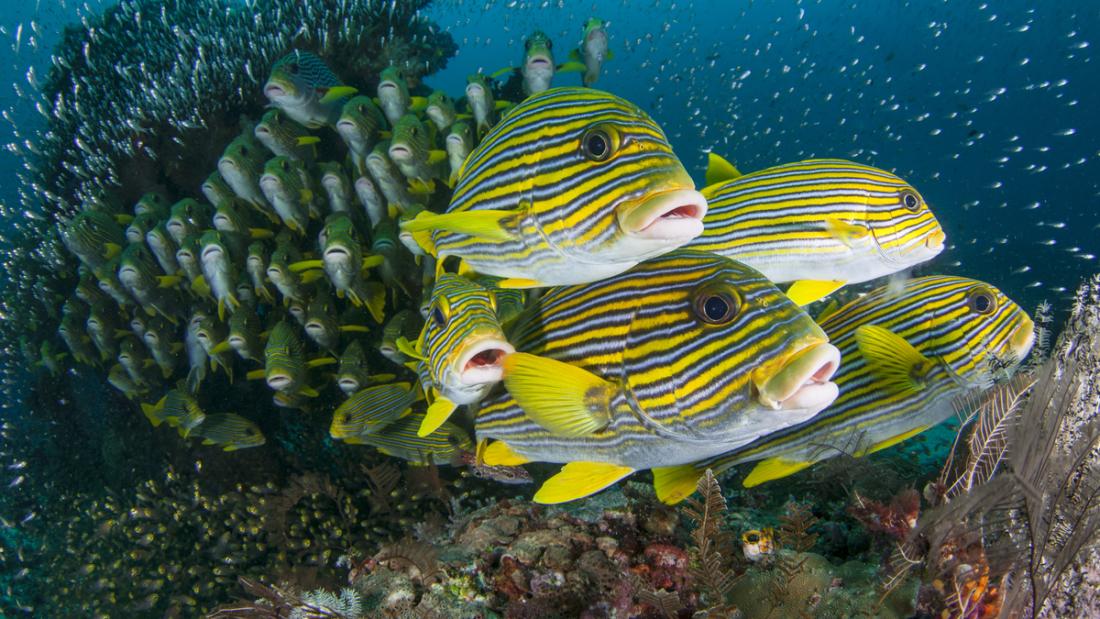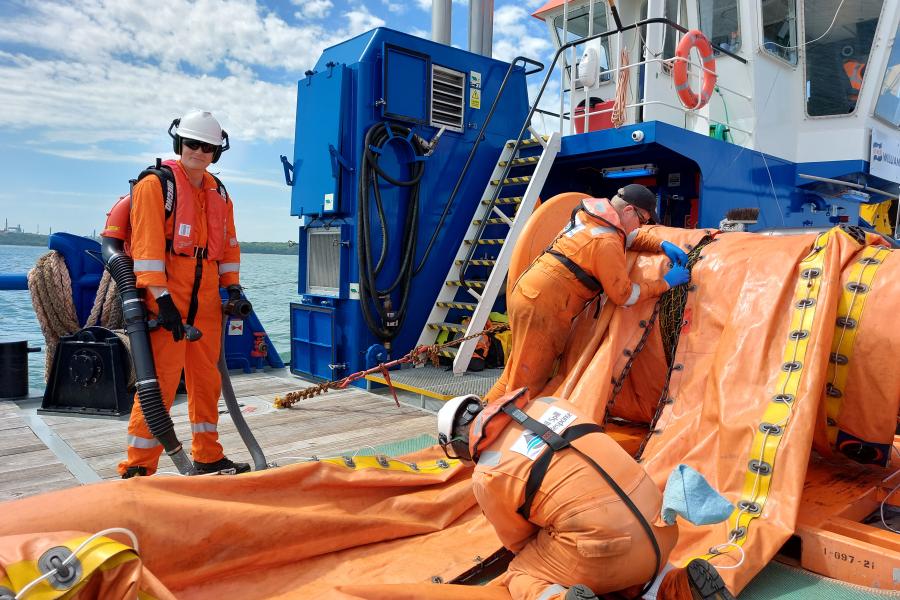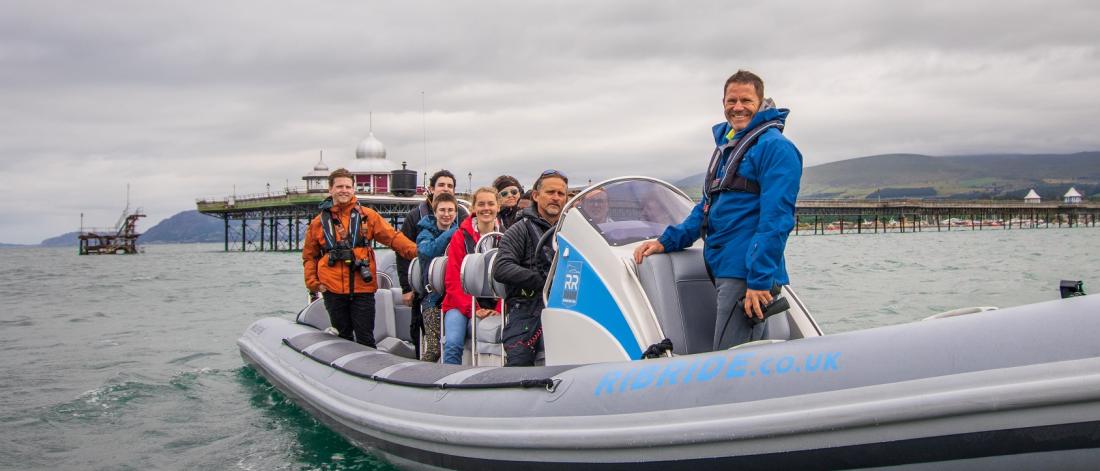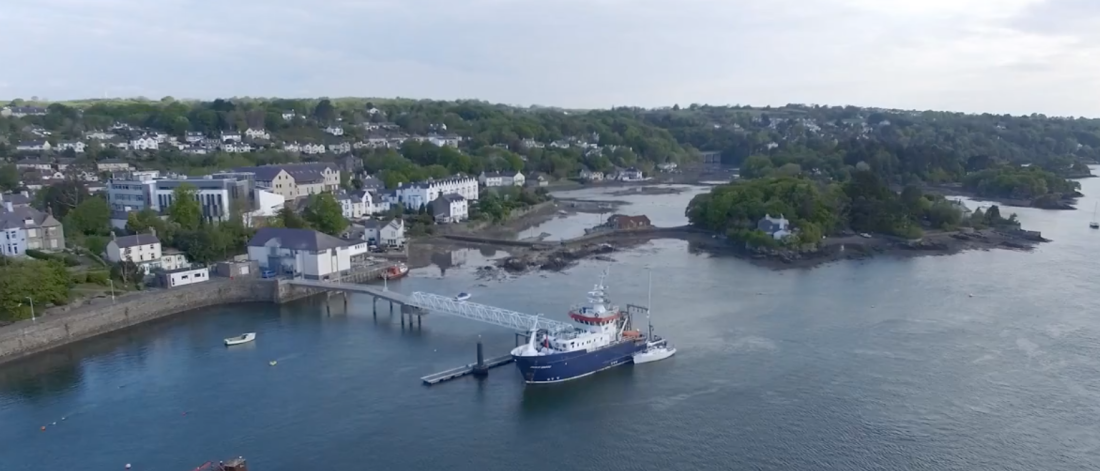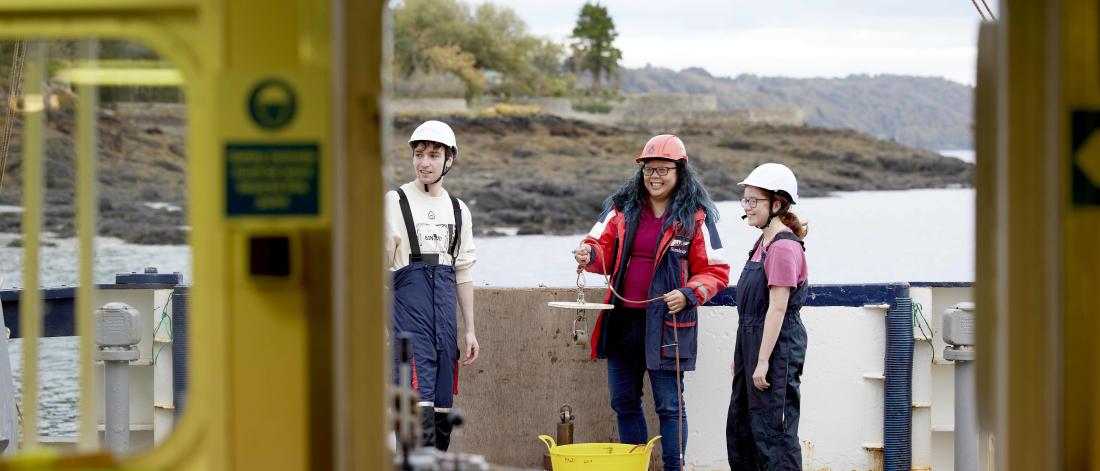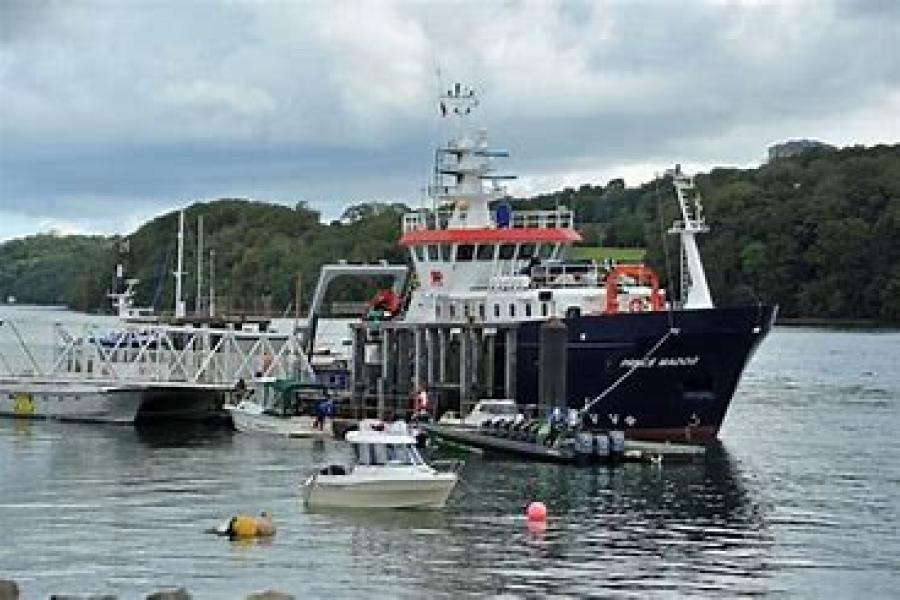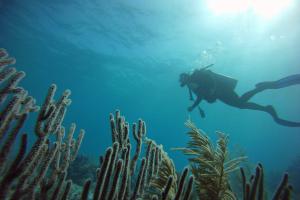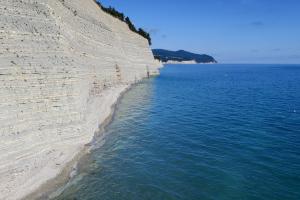Find the right Marine Biology course for you
I don't have many regrets, but not studying at Bangor is one of them.
[0:04]
And I'm incredibly lucky that very early in life I realised that I had this one thing that could always make me feel better.
[0:08]
Didn't matter how low I was plunging, that I had somewhere that I could take myself, where I could reset,
[0:16]
where I could remind myself of where I come from and what is special to me and the things I'm passionate about.
[0:22]
And it doesn't matter if it's up in the mountain or in a in a lake or in the sea.
[0:28]
Those are the things that just reset me.
[0:32]
And so I would say that, you know, you see yourself getting getting down, take advantage of all of the absolute wonders that we have here.
[0:40]
The people, you know, in the nation will travel hundreds of miles to come and see.
[0:45]
You have them right on your doorstep. You might only be here for three years or four years.
[0:49]
Take take advantage of them because it is so, so special.
[0:55]
And, you know, there is nothing that can compare to being up on the Glyderau or the, you know, the Carneddau as the sun is just starting to rise.
[1:04]
Standing on top of Tryfan and looking at all those mountains and just knowing that this right now is
[1:10]
your home and your place - embrace it. You've all made the best decision of your lives in coming here.
[1:15]
And I just want you all to make the most of it, treasure it, use it as best as you possibly can, you know, on your doorstep.
[1:22]
You have natural wonders that almost nobody else at university in this nation has.
[1:26]
So please, please use them to their full extent. And I promise I'll be back and see you sometime soon while you're here.
[0:03] So, so excited! It's so great to meet Steve! It's just such a great opportunity, to even see the
[0:09] Menai Strait in a different way as well.
[0:12] One of the reasons why I chose Bangor initially, was to be in such an area as this
[0:16] There's no better way to spend the afternoon really!
[0:23] We're heading out into the Menai Strait and off to Puffin Island with a group of students of the natural sciences.
[0:28] To get a flavour of the very finest of this area has to offer.
[0:47] Well, so far we've seen kind of all the very best of the wildlife from this part of the world, particularly when it comes to the birds.
[0:53] The ledges are thick, almost every single centimetre is covered with guillemots, a gull...
[0:59] and we've seen gannets and of course puffins as well.
[01:02] I guess this is why I decided to build a relationship with Bangor.
[01:06] What you can see right here. You know, any institution can invest in its infrastructure.
[01:11] Any institution can get bigger buildings or get more teaching.
[01:14] But there's no amount of investing that can get this.
[01:18] Having this on your doorstep is why Bangor is the best place to study natural sciences in the nation.
[01:30] It is fantastic. You know, obviously not just the company with having Steve there, it's seeing the wildlife that we saw the kittiwakes
[01:37] there cormorants the seals and that sort of stuff. Absolutely phenomenal, like once in a lifetime.
[01:41] Steve is such a genuine lovely guy. Yes, absolutely amazing. There's no better place to be.
[01:46] It's been a pretty amazing afternoon. I feel a little bit buffeted and and chilled.
[01:51] But to be able to head out from you know, you can see the University from here.
[01:56] You can see the halls of residence from here. To be a student here and think that you could finish studying,
[02:01] come down and get on a paddleboard or a kayak and head out into the Menai Strait and have this is your way of relieving exam stress.
[02:08] I mean, that just absolutely blows my mind.
Watch - Study Marine Sciences
Watch - Lab Session
Hi, I'm Martin Roberts. I'm a Biological Oceanographer here at the School of Ocean Sciences.
And today we're in the laboratory practical for the OSX2007 Ship-based Field Course, which makes use of the the Prince Madog to go to sea and to sample variables in space and time.
Today we're splitting into three groups. We're doing different activities.
We've got sediment grain size analysis going on downstairs where we're looking at, grain size distributions so that we can make inferences about current conditions and sediment transport.
We've got suspended sediment analysis. We've got a group working upstairs that are doing post-processing of samples that were taken at sea.
We've got chlorophyll fluorescence measurements going on as well, so that we can understand the productivity of our of our sea here in the Menai Strait
And we've also got plankton analysis as well. So identification of different plankton groups and counting of those plankton groups in, in samples that we collected at sea on the Prince Madog in November.
Hello everybody. My name is April Bishop. I am a second year student here at Bangor University, and I'm doing Marine Biology and Oceanography.
One of the best things I like about here at Bangor, because you get the opportunities to go into the landscapes that we are in here today.
We are focusing on one of our ship based modules. Which you will have the joys to go on the ship at one point in your second year?
And today we have been focusing on different stuff that we're going to do that we did on the ship.
And what I like more about the practical, is that the Labs here is just such a big space for you to work in, and you've got such a big opportunity in as well, many lectures as well as demonstrators who help you to help you understand and help you learn more about things that you have an interest in.
One of my main, main things I really love being here is the opportunities that you do get here.
As myself, I do peer guided, on an occasional basis. as well I have been involved with Marine Master's research in my foundation here, and I have had work experience at a tidal renewable company called Minesto. Yeah thats basically it.
Our top facilities will bring what you learn on your degree to life
As part of your degree, you may make use of some of our excellent facilities, which include:
- a state-of-the-art, purpose built research vessel, the RV Prince Madog
- small inshore research vessels
- high tech research laboratories
- filtered seawater supply direct from the Menai Strait and tropical and cool water marine aquaria
- local area PC based computer network and powerful number-crunching workstations used in numerical ocean modelling

Do you have a question about life as a Bangor University student? Our ambassadors will be happy to help you find the answer.
They can tell you more about studying here, about the amazing Clubs and Societies we have, and how they made friends and settled in to life at university as a Marine Biology student.
If you have any questions about the course, our lecturers are on hand to help. Below are some examples of frequently asked questions. Can you think of any more?
- What are the qualities of a successful Marine Biology student at Bangor?
- How can I prepare myself to study Marine Biology at Bangor?
- How will I know that Marine Biology at Bangor is the right choice for me?
Our Research in Marine Biology
Bangor University has a long track record of Marine Biology research stretching back over 100 years. Our research covers the full marine realm, ranging from semi-terrestrial habitats such as saltmarshes to the deep sea and from the poles to the tropics. We currently have research projects which focus on Antarctic fjords and Indian Ocean Coral reefs.
An important strand of Marine Biology research here at Bangor focuses on conservation and marine resource management. Our research examines how anthropogenic disturbances such as exploitation, invasive species and climate change affect marine ecosystems, and how to best manage and protect these ecosystems
Our research underpins the sustainable exploitation and production of wild-capture fish and aquaculture. It also covers the wider impacts of fisheries and aquaculture on the marine ecosystem and how they can affect bycatch species (other fish, seabirds, marine mammals, seabed organisms) and habitats (e.g. reefs, seagrass beds). It also underpins our development of sustainable tropical fish hatcheries.
You may also be interested in these related subject areas.
You may also be interested in these related subject areas.

